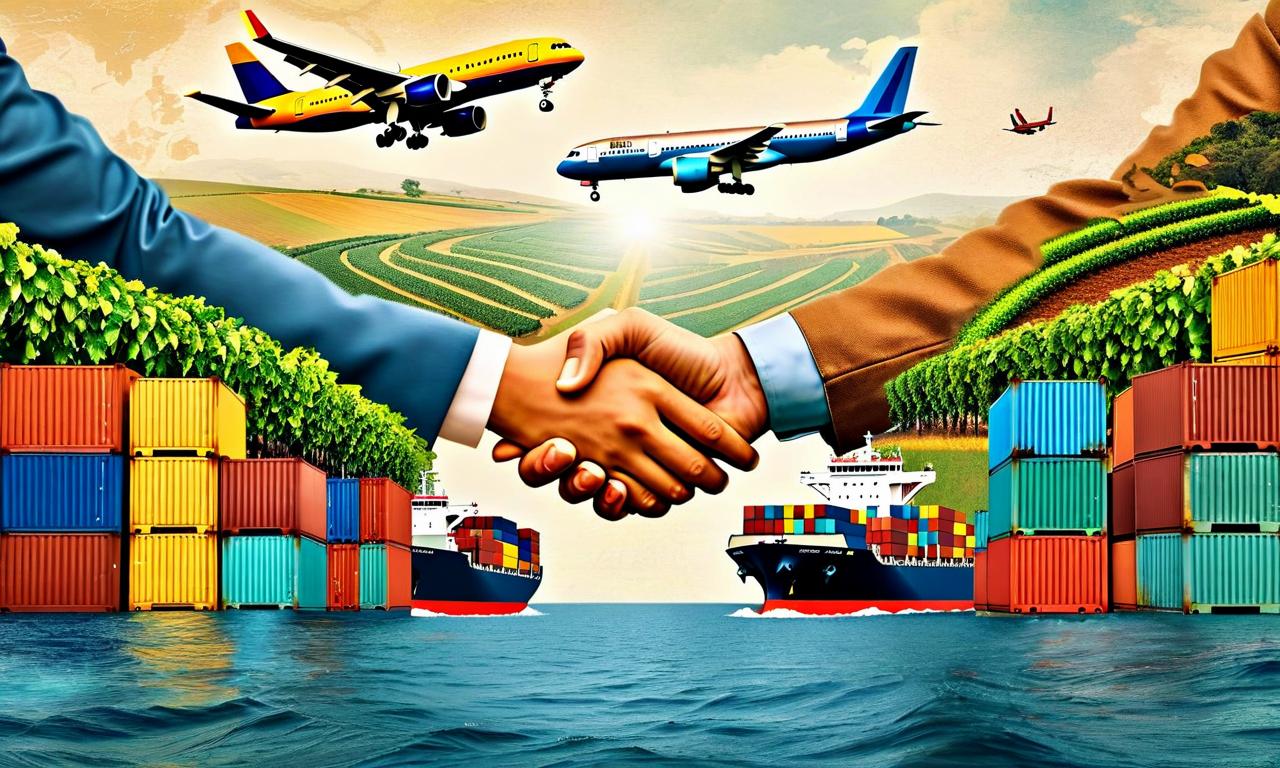Modi and Lula Reaffirm India-Brazil Strategic Partnership Amid Global Challenges
Prime Minister Narendra Modi and Brazilian President Luiz Inácio Lula da Silva held a telephone conversation, reinforcing their commitment to strengthen the India-Brazil strategic partnership. They discussed enhancing cooperation in trade, technology, energy, defense, agriculture, and health sectors. Both leaders agreed to maintain regular contact on regional and global issues. The call comes as both nations face 50% tariffs from the U.S., with India accused of indirectly supporting Russia and Brazil dealing with additional sanctions. China has shown support for Brazil, highlighting BRICS solidarity. Brazil's approach to managing trade conflicts, including securing exemptions and diversifying exports, could offer insights for India.

*this image is generated using AI for illustrative purposes only.
In a significant diplomatic engagement, Prime Minister Narendra Modi received a telephone call from Brazilian President Luiz Inácio Lula da Silva, underscoring the strengthening ties between the two emerging economies. The conversation comes at a crucial time as both nations navigate complex global trade dynamics and seek to bolster their strategic partnership.
Reinforcing Bilateral Cooperation
During the call, both leaders emphatically reaffirmed their commitment to deepening the India-Brazil strategic partnership. Prime Minister Modi recalled his recent visit to Brazil, highlighting the productive outcomes of their discussions. The two nations have agreed on a comprehensive framework aimed at enhancing cooperation across multiple sectors, including:
- Trade and technology
- Energy and defense
- Agriculture and health
- People-to-people exchanges
This multifaceted approach underscores the breadth and depth of the India-Brazil relationship, positioning both countries to leverage their strengths in an increasingly multipolar world.
Global Issues and Regular Dialogue
The conversation between Modi and Lula extended beyond bilateral matters, encompassing discussions on regional and global issues of mutual interest. Recognizing the importance of continued dialogue in addressing shared challenges, the leaders agreed to maintain regular contact. This commitment to ongoing communication reflects the strategic importance both countries place on their partnership.
Navigating Trade Tensions
The diplomatic engagement takes place against a backdrop of mounting trade tensions with the United States. Both India and Brazil are currently facing steep 50% tariffs imposed by Washington, presenting significant economic challenges:
- India has been accused by the U.S. of indirectly supporting Russia's war efforts through continued oil imports.
- Brazil is grappling with additional sanctions, further complicating its trade relations with the United States.
These pressures have prompted both nations to seek alternative strategies and alliances to protect their economic interests.
BRICS Solidarity and Diplomatic Maneuvers
In response to the U.S. trade measures, China has extended strong diplomatic support to Brazil, signaling solidarity among BRICS nations (Brazil, Russia, India, China, and South Africa). This move highlights the potential for increased cooperation within the BRICS framework as member countries face common challenges in the global economic order.
Brazil's approach to managing its trade conflict with the United States may offer valuable insights for India:
- Secured key exemptions through patient lobbying
- Diversified exports to reduce dependency on single markets
These strategies could potentially serve as a roadmap for India as it navigates its own trade disputes with Washington, emphasizing the importance of diplomatic finesse and economic diversification.
Looking Ahead
As India and Brazil continue to strengthen their strategic partnership, the recent call between Modi and Lula demonstrates the resilience of their relationship in the face of global economic pressures. By fostering cooperation across various sectors and maintaining open lines of communication, both nations are well-positioned to navigate the complex international landscape and pursue their shared interests on the world stage.
The evolving dynamics within BRICS and the strategies employed by Brazil in managing trade tensions offer valuable lessons for multilateral cooperation and economic diplomacy. As these two influential emerging economies continue to align their interests, their partnership could play a crucial role in shaping the future of South-South cooperation and global economic governance.
























